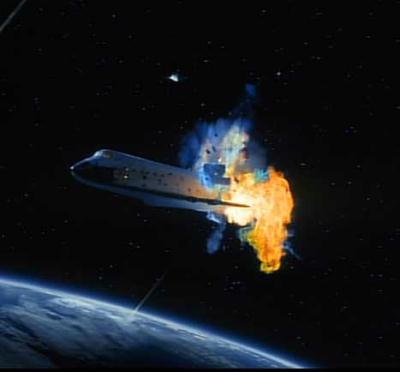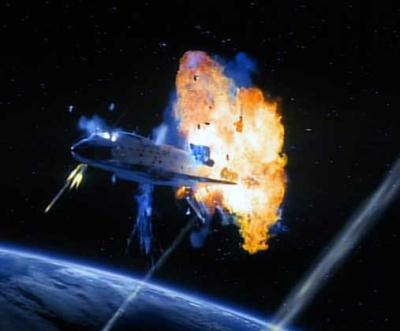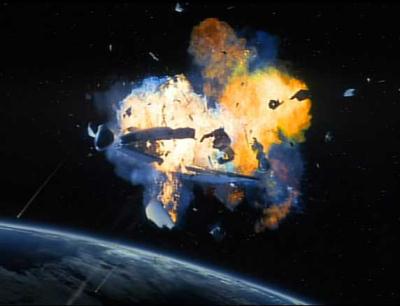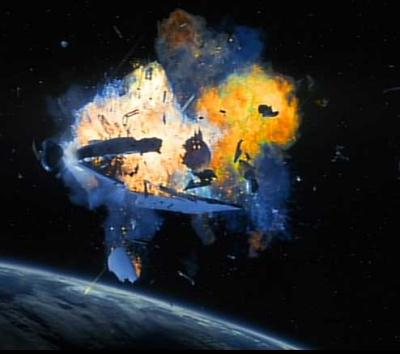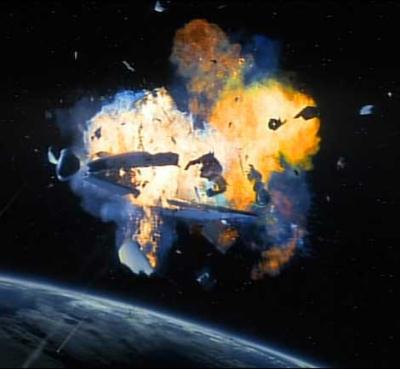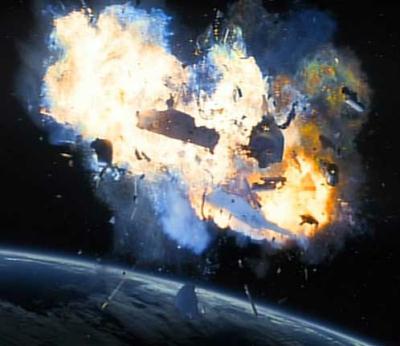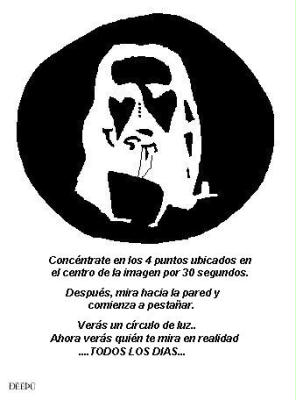Venezuela losing time — literally - Clocks lose 150 seconds a day due to power shortage
www.msnbc.com
Many Venezuelans have a lot of time on their hands anyway -- massive oil shortages have caused long lines at the gas station.
CARACAS, Venezuela, Feb. 27 — If you thought Venezuela’s political crisis seemed to be dragging for an impossibly long time — you were right. In a bizarre mass-malfunction, Venezuela’s clocks are ticking too slowly due to a power shortage weakening the electric current nationwide. By the end of each day, the sluggish time pieces still have another 150 seconds to tick before they catch up to midnight.
“EVERYTHING THAT HAS to do with time-keeping has slowed down. If it’s an electric clock, it’s running slow,” said Miguel Lara, general manager of the national power grid.
“Your computer isn’t affected. Your television isn’t affected. No other devices ... just clocks,” he added.
The meltdown has taken a total 14 hours and 36 minutes from Venezuela’s clocks over 12 of the past 13 months, he said.
In a country fiercely divided between friends and foes of its leader, President Hugo Chavez, it isn’t surprising some opponents have jokingly blamed the clock chaos on the president.
But instead it appears to be Mother Nature that lashed out against Father Time. The river powering a major hydroelectric plant in southeast Venezuela lost force due to a severe drought in February 2001. To prevent blackouts, the country slightly lowered the frequency of the current.
At least one time expert was caught off guard.
“It’s the most bizarre thing I’ve ever heard of,” said Dan Nied, head of the U.S.-based School of Horology, or the science of time measurement. “But yes, clocks would slow down.”
For common quartz clocks, the slight drop in frequency slows the vibration of the crystal that regulates time keeping, he said, adding, “People must be going nuts.”
But in a nation that rarely starts on schedule, Venezuelans have taken their time troubles in their stride. An air traffic controller casually told Reuters that his office corrected its clocks every few days or months, without incident so far.
“Yes, it’s been happening here. But we correct the clocks every three months and there’s no problem,” he said.
Many people on the streets of Caracas were only vaguely aware that their clocks had been slowing down.
“I wake with the sun,” said Rene Osurna, who works at a shipping company. “And if you’re two minutes late to the office, and everybody else is too, there’s no problem.”
LAW OF THE LAND - Castro on trial for U.S. terrorism - Court considers damages for '96 shoot-down by Cuban MiGs
Posted: February 27, 2003
1:00 p.m. Eastern
By Diana Lynne
© 2003 WorldNetDaily.com
Cuban dictator Fidel Castro may be on the hook for hundreds of millions of dollars in damages to an exile group for the shoot-down of its planes by Cuban MiG fighter jets.
A federal court in Fort Lauderdale, Fla., heard testimony yesterday in the damages phase of a lawsuit that seeks in excess of $40 million.
Judicial Watch, the public-interest group that investigates and prosecutes government corruption and abuse, filed the lawsuit last May against Castro, the Republic of Cuba and Castro's brother, Raul, who is the former director of the Cuban Secret Services and commander in chief of the Cuban Air Force.
The lawsuit was filed on behalf of José Basulto, founder and president of the Miami-based humanitarian group Brothers To The Rescue, or BTTR.
"Castro will pay for his murderous acts," said Judicial Watch Chairman and General Counsel Larry Klayman. "Unlike the U.S. government, Judicial Watch is taking action against Castro for this blatant terrorist attack against American citizens."
Basulto is a survivor of the Feb. 24, 1996, attack by Cuban Air Force fighter jets on three unarmed, civilian search-and-rescue aircraft operated by BTTR in international airspace over the Florida Straits. Two aircraft were shot down by Castro's MiGs, resulting in the deaths of Armando Alejandre Jr., Mario De La Pena, Carlos Costa and Pablo Morales.
Brothers to the Rescue pilots shot down by Cuban MiGs in 1996.
Basulto piloted the third Cessna that escaped the attack. Three others on board also survived.
"The aim was to kill me," Basulto told WorldNetDaily. "We were very threatening to Castro."
WorldNetDaily has reported testimony offered in a June 2001 trial of a Cuban spy network that infiltrated exile groups in Miami, including BTTR, provided evidence the BTTR aviators were assassinated.
Double agent Juan Pablo Roque had become a BTTR pilot and supplied information to the Cuban government as well as the FBI. Roque was part of the Cuban Intelligence Service's "Wasp Network." Five members of this espionage ring were convicted of 23 espionage-related charges.
BTTR is a humanitarian, pro-democracy organization that advocates the non-violent establishment of a democracy in Cuba. BTTR volunteers fly search-and-rescue missions for Cuban refugees. Since 1991, BTTR has saved the lives of over 4,200 Cubans seeking to cross the Florida Straits in search of freedom from communist Cuba. BTTR has flown close to 2,000 missions over the area of the 1996 shoot-down.
The incident sparked widespread condemnation of the Cuban government, which claimed at the time the planes were in Cuban airspace.
Castro subsequently admitted to ordering the shoot-down.
"I take full responsibility for what took place," Time magazine quotes him as saying in a Mar. 11, 1996, article.
Castro repeated this confession in a Sept. 3, 1996, interview with CBS News anchor Dan Rather.
On its website, BTTR links to a recording of the MiGs pilots' radio communications during the shoot-down.
Citing "expert independent sources and the U.S. government," BTTR claims to have enough evidence to prove that the Clinton-Gore administration had prior knowledge of the attack, consented to the shoot-down, collaborated with Castro's Cuba to make the crime possible and covered up its own participation by using misinformation and efforts to remove evidence and potential witnesses.
In 1997, families of three of the four victims successfully sued and were awarded $188 million in damages paid from Cuban government assets frozen in U.S. banks. The judge in that case called the attack an act of terrorism.
The Judicial Watch suit was filed under the Antiterrorism and Effective Death Penalty Act of 1996, which enables suits for money damages against foreign states that cause "personal injury or death that was caused by an act of …extrajudicial killing, aircraft sabotage… or the provision of material support or resources for such an act."
The U.S. designated Cuba as a state sponsor of terrorism in 1990. Cuba loses its immunity because of that, according to Klayman.
The Judicial Watch complaint maintains Castro and his brother are known to collaborate with other terrorists and terrorist states, such as Palestinian Authority leader Yasser Arafat, al-Qaida chief Osama bin Laden and the Irish Republican Army.
"[Deputy Defense Secretary] Paul Wolfowitz and everybody admits that he's got bio-chemical labs on his island and that he assists Iran, Iraq and Libya in terrorist activities. He's sponsoring the FARC in Colombia. He's in bed with Hugo Chavez in Venezuela. He's a bigger problem than he was 20 years ago," Klayman said.
The suit never went to trial. Last month, Basulto won by default because neither Castro nor his legal representatives responded to the legal action by the given deadline.
Cuba maintains U.S. courts have no jurisdiction.
This morning, Basulto and his wife provided testimony of their pain and suffering over Basulto being an assassination target and over the wrongful death of the BTTR brothers.
The verdict on the size of the award is expected in a few months.
"I hope [the suit] accomplishes first of all another public indictment of Castro for what he's done so he appears as the criminal and terrorist he is," Basulto told WND.
Basulto plans to use the damages award to "help bring freedom" to Cuba. He said he will disclose the details of plans to help buttress an opposition movement in Cuba when the verdict comes in.
Klayman plans to enforce the award against the frozen assets of the Cuban government in the U.S. and said, if necessary, he would attach accounts of American companies that are doing business with Castro – like travel agencies.
"We're trying Castro for acts of terrorism. He's even worse than Saddam Hussein, and the president needs to do something about him," Klayman told WND. "We're not only trying to get justice for Jose Basulto but we're sending a message to the president that Castro should be next."
Judicial Watch also filed a criminal complaint against Castro and his brother in Brussels, Belgium, for crimes against humanity.
We're trying Castro for acts of terrorism. He's even worse than Saddam Hussein and the president needs to do something about him. We're not only trying to get justice for Jose Basulto but we're sending a message to the president that Castro should be next.
--Larry Klayman, Judicial Watch chairman and general counsel
Japan pushes Lord Of The Rings to the brink of $500m outside the US
www.screendaily.com
Mark Schilling in Tokyo 25 February 2003
In its first three days on release in Japan, The Lord Of The Rings: The Two Towers grossed $9.66m (Y1.13bn) from 800,000 admissions. This represents a 25% improvement over the opening of The Lord Of The Rings: The Fellowship Of The Ring.
The success brings the second installment of Peter Jackson’s fantasy trilogy to the cusp of a $500m international total. As of Sunday (Feb 23) The Two Towers had taken $498m internationally. In the US, the film has grossed more than $328m.
The film will easily pass the magic box office watermark – an achievement only made by six other titles ever – this week.
Fellowship took almost another month to reach the same amount, passing $500m over the March 22-24 weekend in 2002. In total the first film claimed $548.5m from international markets.
The Two Towers’s all-night previews in Japan, on 600 screens on February 15,earned $2.65m (Y310m) from 200,366 admissions, for gains of 42% and 50%, respectively, over the previous film.
Distributors Nippon Herald and Shochiku expect The Two Towers to finish over the $128m (Y15bn) mark. By comparison, The Fellowship Of The Ring ended its run with $77.5m (Y9.07bn), ranking behind the two Harry Potter films on the 2002 box office chart.
The Two Towers has already surpassed Fellowship’s total earnings in 33 countries, including Norway and Denmark where it now ranks as the highest grossing film of all time. The sequel has still to open in a handful of territories with Romania next up on Feb 28, followed by India (March 14) and Venezuela (April 9).
The third entry in the trilogy, The Return Of The King, begins its international roll-out in December this year and will hit theatres in Japan in the spring of 2004.
Additional reporting by Robert Mitchell in London
